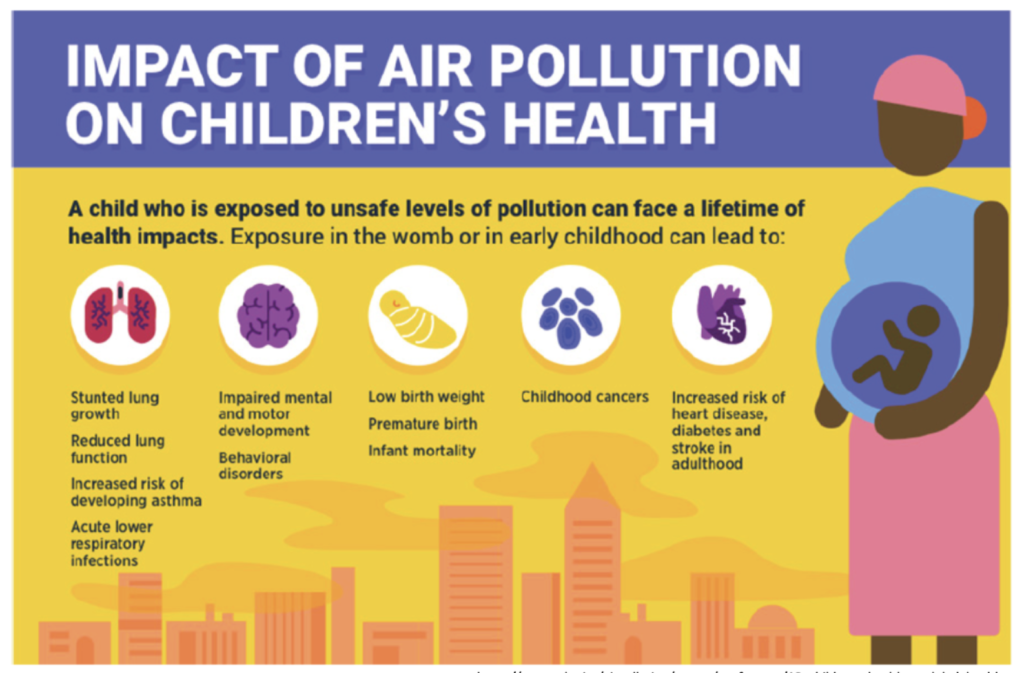The Westminster Commission for Road Air Quality invited Professor Cathy Thornton, Professor of Human Immunology at Swansea University to discuss the adverse effects of poor air quality on the fetus, including the impact of high levels of particulate matter (PM) 2.5.
Barry Sheerman, MP for Huddersfield and Chairman of WCRAQ, updated the delegates on the ten-minute bill, he put forward in parliament, which is due for a second hearing soon.
He highlighted that MOT tests need stricter testing to establish if the Diesel Particulate Filters (DPF) in vehicles are either intact, missing or faulty. Barry highlighted how, if it should pass, this would be a quick win in the steps to improving the quality of the air we breathe.

Pollution affects fetal development
Cathy began her presentation by outlining how air pollution affects pregnancy outcomes. ‘When looking at fetal health, we must consider the mother’s environment while she is pregnant. Exposure to poor air quality can be passed onto the fetus via the placenta. There are direct and indirect impacts of the mother inhaling pollution, which can lead to organ dysfunction in the mother and child, which seem to be related to epigenetic changes,’ she explained.
Cathy highlighted how the pollution a mother inhales during certain points of pregnancy can have different effects on the fetus. For example, fetal exposure to air pollution in the early stages of pregnancy can alter brain development, whereas exposure later in the pregnancy can cause pre-term birth and increase the chances of the child developing asthma.
Does particle size matter?
A study published in 2021 (Ghosh R, et al. PLoS Med 2021;18:e1003718), found that 40% of pre-term births were linked to a mother being exposed to air pollution during pregnancy. Keith Loveridge Senior Sustainability Officer, ESD Planning Advisor at Inner West Air Quality Network asked if the research on PM2.5 is also relevant to smaller particles such as PM1. Cathy explained how the focus has been on PM2.5 but the results probably would be similar for PM1, although the effect of PM1 exposure could be greater due to the smaller particle size, making it more likely for the particulate matter to travel around the body and through the placenta to the fetus.
‘Working with communities which are open to changing their behaviours for the better is key.’
Cathy highlighted the importance of this research and similar projects such as Dr Sophie Duggan’s Born in Bradford project in helping raise awareness of the effects air pollution has on everyone – even the unborn child. Cathy commented on how working with communities that are open to changing their behaviours for the better is key so that changes are made, and air quality is improved.
Stephen mentioned that local authorities have very little insight into the issues surrounding air pollution and that the Westminster Commission for Road Air Quality and its party chairs and members are responsible to get this type of information in front of the right people because knowledge about these topics is critical.
If you would like to make a difference to the quality of the air we breathe, contact us today at jason.pidgeon@visiecommunication.co.uk




